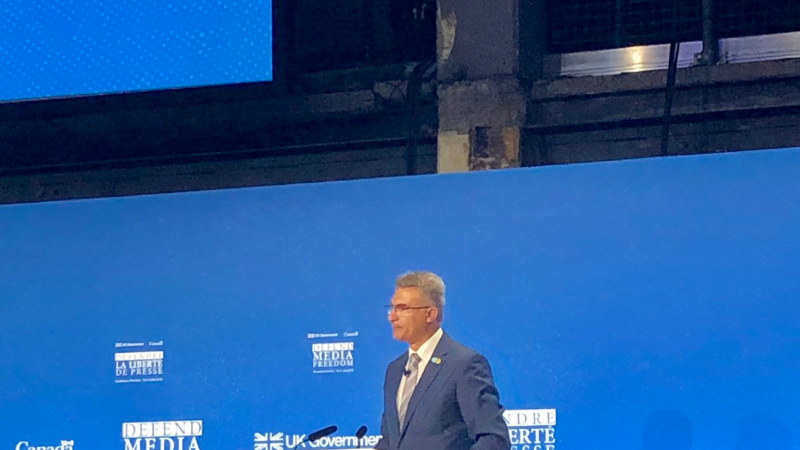The UK Foreign Office seems to have missed the twists and turns by the Maltese government following Foreign Minister Carmelo Abela’s statement in London last month when he referred to an independent public inquiry into Daphne Caruana Galizia’s assassination.
Replying to questions by The Shift, the UK Foreign Office “welcomed Malta’s commitment” expressed at the Global Media Conference hosted by the British and Canadian governments last month, saying it “confirmed” the Maltese government’s commitment to an independent inquiry.
When pressed on the issue of justice for Caruana Galizia, assassinated in a car bomb a few metres away from her home exactly 22 months ago, on 16 October 2017, Abela referred to the three-month deadline set by the Council of Europe report on Malta, adopted in May.
“Basically, in that Council of Europe report, there is that within three months we need to have a public inquiry,” Abela had told the audience at the conference, adding that the government’s position “is that [it] will abide by the timing that the Council of Europe dictated”.
Read: Foreign Minister commits to public inquiry within three months
Yet Prime Minister Joseph Muscat and Justice Minister Owen Bonnici later denied the commitment, saying Abela’s words had been misinterpreted by the media.
The UK Foreign Office’s reply to The Shift shows there was little room for interpretation: “We also welcome Maltese Foreign Minister Carmelo Abela’s statement at the Media Freedom Conference on 11 July confirming Malta’s commitment to an independent public inquiry.”
The questions sent by The Shift referred to the UK’s support for an independent public inquiry and the contents of the Council of Europe report into the assassination of Caruana Galizia.
The UK Foreign Office referred to parliamentary questions tabled by Rt Hon Tom Brake MP on 7 March on action by the British government to ensure Malta pursues justice for the journalist, as well as its assessment of the findings of the Venice Commission on Malta.
The Foreign Office confirmed Sir Alan Duncan replied on 12 March, saying that while concerns were shared, “the decision to establish a public inquiry is a matter for the Maltese government.” He said the UK was committed to the defence of freedom of expression and had launched a media freedom campaign “on this very issue”.
Read: ‘Public inquiry will not impinge on ongoing criminal investigation’
Prime Minister Joseph Muscat has not committed to the three-month deadline set by the Council of Europe in a resolution adopted in May. An independent public inquiry would establish whether Caruana Galizia’s death could have been prevented, and assess measures in place to ensure such an attack could never happen again.
The requirement set in the Council of Europe report is backed by leading international press freedom and human rights organisations. Reporters Without Borders, PEN International, Article 19, the European Centre for Press and Media Freedom, the Committee to Protect Journalists, the International Press Freedom Institute and the International Federation of Journalists have all backed the call for an independent public inquiry.
A vigil was held at the Great Siege monument in Valletta on Friday to mark 22 months since Caruana Galizia was assassinated. “The Council of Europe’s deadline for an independent and public inquiry into the assassination of Daphne Caruana Galizia expires in just over a month. There’s no sign the government intends to comply with this. Our call for truth and justice must be renewed,” Occupy Justice said in a statement.













